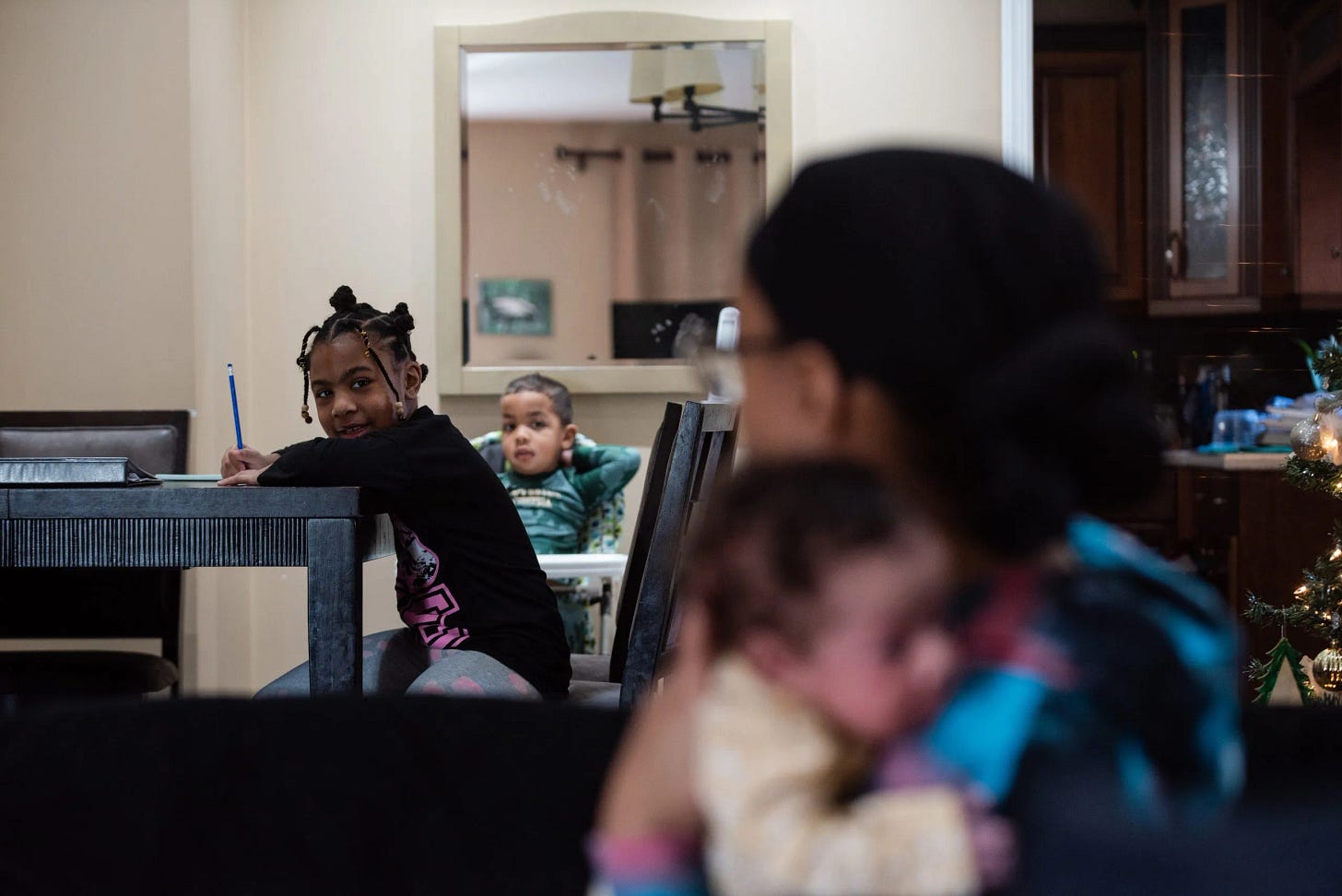We Are The System Now
We have more tools than ever in history to educate our children - and ourselves - for survival and thriving
For a very long time, I’ve beaten you over the head with a deceptively simple question that ought to animate every education policy debate in America: How are the children?
Not how are the politics. Not how are the test scores in abstract. Not how are the mechanisms—charters, vouchers, tax credits, or microschools.
How. Are. The. Children.
I’ve always been agnostic about methods and models, but religious about outcomes.
School choice was never a strategy; it’s always been a policy tool. And like any tool, its value depends entirely on how it's used, who it benefits, and what outcomes it produces. Right now, based on a comprehensive new report from FutureEd, the answer isn’t comforting.
According to the report, nearly 40% more students joined universal private school choice programs in 2024–25, bringing the total number of participants to over 800,000 students and costing taxpayers $5.75 billion. But what we mostly got in return were subsidies for families already paying private tuition—many of them wealthy, many of them white. In Oklahoma, one-quarter of the participants earn over $250,000 a year. In Indiana, 8% of voucher families earn more than $200,000.
This is not an education movement. It’s a redistribution of public dollars upward. And it’s happening at the exact moment many of the same politicians championing school choice are cutting food assistance, slashing Medicaid, gutting student loan relief, and questioning whether children deserve meals at school.
We have to ask: How can you trust a movement to fund private school tuition for affluent families that can’t even commit to feeding poor children lunch?
And more urgently: How did we, as Black education advocates, become mere spectators in a game we helped start?
I entered the education “reform” “movement” because I believed education was not just a human right—but one of the most powerful tools we have for creating a more just and equitable society. I thought school choice had utility for that aim, especially for communities that rigid, unresponsive public systems had failed.
But let’s be honest: the rationale for school choice has shifted. No longer is it about liberation for the least of these. It’s increasingly self-justifying, ideological, and detached from the hard work of producing student learning. And as African Americans, we have been strategically sidelined in this new iteration. We’ve been offered side dishes—some microschools here, a “parental rights” meme there—while the main course is served to others.
We are no longer the reason. We are the excuse.
That should compel us to do what we’ve always done in moments like this: adapt with wisdom, purpose, and strategy. We’ve never had the luxury of engaging with public policy uncritically. We’ve always had to ask: What does this mean for our survival, our dignity, our children’s futures? That’s not pessimism. That’s ancestral memory.
We can’t afford to be ideologues. Not now. Not when the intellectual development of Black children is being drowned out in a political season that’s more interested in power than pedagogy. This is the moment where we must return to our historical posture: self-determined, shrewd, and collective in our approach to education.
That means asking: Who is teaching our children? What are they being taught? How do we ensure their brilliance is cultivated and protected, not ignored or criminalized?
It means taking stock: How many Black educators do we have? How many do we need? What are the institutions—churches, libraries, grassroots hubs, AI platforms, mutual aid collectives—that we can rally into an infrastructure for our children’s learning?
We can’t wait for the state to get this right. We never could. But we also can’t pretend that walking away from public funding, public oversight, or public goods is the path forward either. That path leads us further into irrelevance.
I’ve taken to building something else. I asked myself, what does the total of all I’ve learned and advocated do now to transition our discussions from problems to solutions, powerfully? That question led me to write a lengthy letter to myself (and to trusted partners), titled "Our Way Forward: An Open Education With or Without School"—a vision rooted in the principle of cognitive sovereignty, educational pluralism, and academic autonomy. A grassroots movement of people building community-centered, culturally grounded, digitally connected, and radically accessible learning opportunities. Libraries are classrooms. Podcasts are curriculum. Neighborhood aunties are literacy coaches. AI tools become tutors, and open-source archives become textbooks.
Learning for all our kids, with or without schools. Learning everywhere, all the time, without cost.
My cause for guarded optimism comes from the reminder that there are many more tools available to us than ever before, tools that can supercharge self-determined learning opportunities. Not only can we assemble all our scattered resources, talents, and efforts, but we must do it now as a matter of survival. And we can do it not as a rejection of the system but as an act of self-respect in its absence.
We are responsible for showing our children not just how to navigate systems, but to shape them. Not just to survive, but to self-determine.
This moment isn’t original. We’ve been here before. When laws failed, we made our own. When schools shut us out, we taught each other. When policy ignored us, we organized until it could no longer.
Our ancestors built schools in brush arbors and basements. They taught by firelight and in secret. They made education not just a right, but a rite—a sacred passage.
Now, we are the ancestors. And our children are watching to see what kind we’ll be.
There’s no payoff in reacting to someone else’s policies. We are building our own power.
Because if quality-blind, accountability-free school choice isn’t the strategy, then we must be.
More money for poor outcomes isn’t the way; we must be.
We are the system now.





